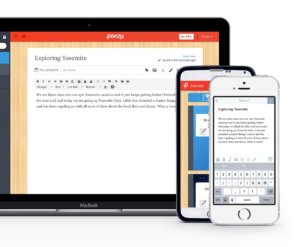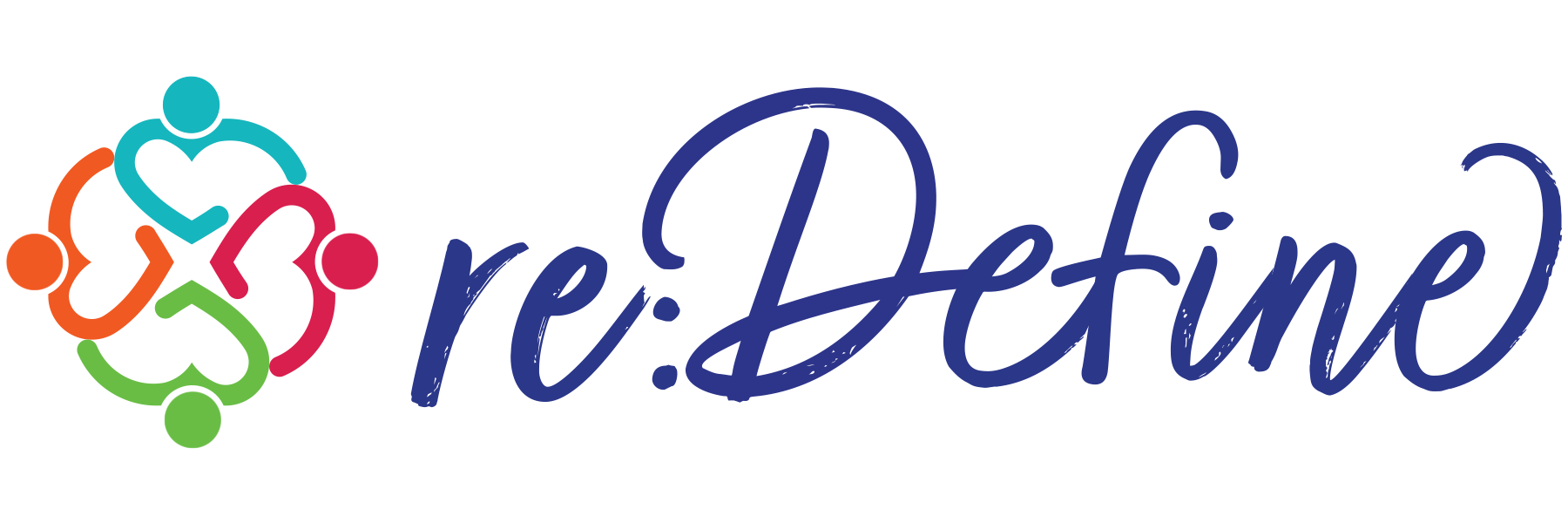Print a PDF Journal:
Download your copy of our Daily Tracking Journal and print out the pages to keep a log of everything you eat and how you are feeling each day.
Or Try a Free Online Journaling App:

Get access to your diary wherever you are – download the free Penzu app for your all of your iOS and Android devices today!
The Importance of Journaling

The very act of writing is very powerful, as it allows your mind to ponder more deeply on what you’re experiencing in the moment.
Journaling can also be a creative outlet. If you choose this powerful tool, find a journal that “feels” right to you.
It’s size, cover design, the feel of the paper can make or break your journaling experience. It doesn’t matter how much you spend, it’s how you feel when you hold it.
“If you don’t know where you’re going, you will never get there.”
To achieve a goal, you must first know what your goal is. There’s something about writing a goal down on paper that makes it more attainable, less intimidating. For many of us, writing down our goals is a step closer in achieving them. Perhaps it’s the writing down and acknowledging of our goals that allows us to intentionally move a thought into action.
The very act of writing things is very powerful, much more so than simply typing into your smartphone or computer. When I started YogaFit, I wrote down my goals and taped them to the wall where I could see them. Each one came true. Once a goal is written, you tend to reflect on it on a regular basis. Over time, it becomes easier to manifest.
Journaling can be used for manifesting goals, but it can also be used for problem-solving and managing stress. It’s been proven to improve mental and physical health, and it can also lead to increased self-esteem.
In Flow: The Psychology of Optimal Experience, author Mihaly Csiksgentmihalyi describes happiness as being one with your “flow state”: a state of concentration so focused that your mind, body, and spirit hone in on a single activity. Writing down your goals can help you worry less and enjoy life more. According to Csiksgentmihalyi, when you are in a flow state, you feel strong, alert, in effortless control, unself-conscious, and at the peak of your abilities. For instance, if you are in a flow state while pursuing a goal, cooking, exercising, or meditating, you are 100% committed to that task, escaping from distractions and negative burdens. Setting and tracking goals is something you can control, strive for, and experience divine pleasure from because it is not left to chance. Instead, goals are purposeful.
I have several journals with me at all times – one for feelings and affirmations, one to record my eating habits, and one for my daily, weekly, and life visions and goals. While you don’t need three different journals like me, carrying a small notebook around with you will enable you to tune into that small voice inside you. As with meditation, there are many ways to use a journal, and I encourage you to try as many as possible to discover which are the most effective for you.
Here are some types of journals you can begin to use on a daily basis. Try one (or all 3) and see how it changes your mood, your motivation in life, and your aspirations.
The “Catchall” Journal
Exactly like the name, this journal is meant to catch any and all random thoughts, lists, to-do’s, quotes that inspire you, etc. Don’t worry if you write your grocery list next to lifelong goals and ideas about your dream job – this notebook is meant to simply be in tune with your thoughts as you move through the day; it’s not meant to be perfect. Choose a smallish notebook that you can carry with you to work, in your laptop bag, to the gym, on the train, wherever you go.
The Food Journal
While this isn’t necessarily a journal for our thoughts, a food journal can definitely invite discipline into your daily routine when it comes to what you eat and how you live a healthy, well balanced life. We often snack while we’re at work, while preparing dinner, or have that extra glass of wine after a meal, completely unaware of how many extra calories we are consuming. Keeping a record of our food intake allows us not only to identify when we’re eating mindlessly but also to discover patterns to our eating – whether related to emotional or environmental circumstances.
The Personal Journal
Here’s where you can shed emotions and personal thoughts no one else will see. Personal journals are incredible ways to process emotions and complex events in life. It’s a way to heal internally from outside stressors in life – healing emotional wounds and allowing ourselves to move forward with passion and intention. Our return to health and well being means being willing to feel in order to heal. A blank page is a safe, non-judgmental place to record our deepest thoughts, worries, feelings, fears…it holds our hands as we explore our subconscious.
Just like exercise, journaling is a kind of habit. Do it a little bit every day, and soon enough you won’t be able to imagine NOT doing it. Here’s my challenge to you: Each morning, before showering, making coffee, or anything, open up your journal and set aside time to write for 10 minutes.
Not sure what to write or how to get started? Here are some tips:
Turn off your internal editor. Write whatever comes to mind. This is called “stream of consciousness” writing. Literally whatever pops in your mind, write it down. It could be nonsense, and that’s perfectly fine. The goal is just to get in the habit of writing.
Write about where you are in this particular moment in your life. Describe your living situation, your work, and your relationships. Are you right where you want to be?
Write what you’re grateful for in life. Cultivate an attitude of gratitude. This has been proven to uplift the spirit, and to remind yourself of all you have in life that you should be grateful for. Keep it in one journal or in a separate section so that you can read through it all at once. When you feel down you can read through it for a boost of gratitude and happiness.
Develop your intuition. Write down questions or concerns then take a deep breath and listen for a response from your Higher Self. Let yourself write automatically. If you don’t get an answer right away, look for signs during the day.
Write prayers. Writing down your prayers is an act of surrender, the fifth niyama, and ultimate relinquishing of control. Ironically, it is liberating.
Write positive affirmations. This reinforces what yoga calls your sankalpa, or positive resolve. It also allows you to go back and reflect on your personal growth and success.
Visualization is a wonderful power. It can generate warmth and heat, and you can use the power of visualization consciously and continuously to create the kind of future you want for yourself. Writing in a journal allows you to see, physically, what is going on in your left brain – home of emotions and feelings – as well as the concrete workings of the right brain. Journaling creates a sense of awareness and truth within yourself that is beyond priceless.
